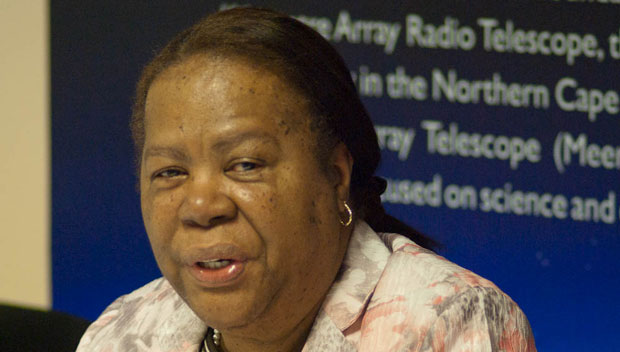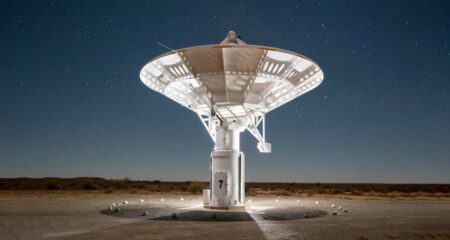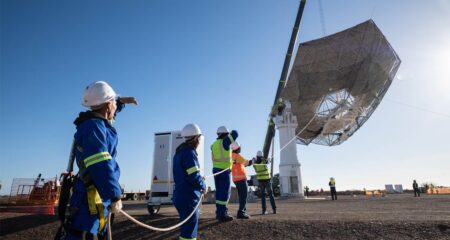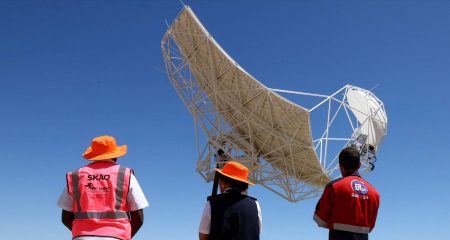
This comes after Australia lodged five complaints with the SKA Organisation — a body comprising the member countries of the project — and the Australian press reported the findings of a confidential report.
Of Australia’s five complaints, three have been dismissed and the remaining two — which relate to the SA bid’s proposed arrangement of the project’s dishes and inconclusive tests concerning possible interference in the proposed location — look set to be resolved at an upcoming meeting on 3 and 4 April.
Science & technology minister Naledi Pandor says there are a number of promising developments for SA’s bid, including support from the African Union and the European Union.
She says finance minister Pravin Gordhan’s budget speech earlier this year — in which it was announced that SKA project contributors would be eligible for VAT relief — has given SA’s bid an “added edge”.
Pandor says Australia’s complaints have, unexpectedly, also strengthened SA’s position because SA hasn’t lodged similar complaints and because Australia may have done so because the SKA Organisation’s reports — to which all members are privy, but which are confidential — may indicate SA as the preferred candidate.
Furthermore, the Sydney Morning Herald, claiming it had access to one of the confidential reports, reported on 10 March that SA was likely to land the project.
The project is being fiercely contested by the two countries, not only because of the billions of dollars in investment involved, but because of the intellectual capital it will attract.
Pandor says the private sector has also expressed interest in the project and various public-private partnerships are on the cards. She says interest has come from multinationals such as Microsoft, Nokia, Oracle and SAP.
SA has partnered with other countries in the region to host the SKA. They include Botswana, Ghana, Kenya, Mozambique, Madagascar, Zambia, Mauritius and Angola, and Pandor says the SA project was told this week that Angola intended to apply to become a full member of the project, too.
Pandor says the project is important because of the researchers it will attract. It will also “strengthen astronomy science achievements” and “create in Africa a global hub for astronomy”.
Because the reports of the SKA Organisation are confidential, Pandor says neither she nor other members of the bid committee can talk about their contents. “We can only infer what the reports say going on Australia’s response.”
Although there is no guarantee that a decision will be made at the meeting on 3 and 4 April, Pandor says the “SA team will make it clear that we want a decision”.
Phil Mjwara, director-general of the department of science and technology, says the two issues the SKA Organisation is considering concern the proposed configuration of the dishes and the radio frequency interference measurements that were done at the remote stations. He says it’s not that the process was flawed, but that the data “wasn’t reliable”.
Mjwara says he hopes that these issues will be resolved at the organisation’s meeting next month. “Your guess is as good as ours as to what will come out of that meeting [but] if our optimism is correct and two issues are resolved, then the board will probably discuss making the announcement. If not, it will discuss the road ahead. It’s still very difficult for us to pronounce.”
SKA SA project director Bernie Fanaroff says the SKA is the world’s largest science project and is on the same scale as projects such as the particle accelerator at Cern and the Hubble space telescope.




